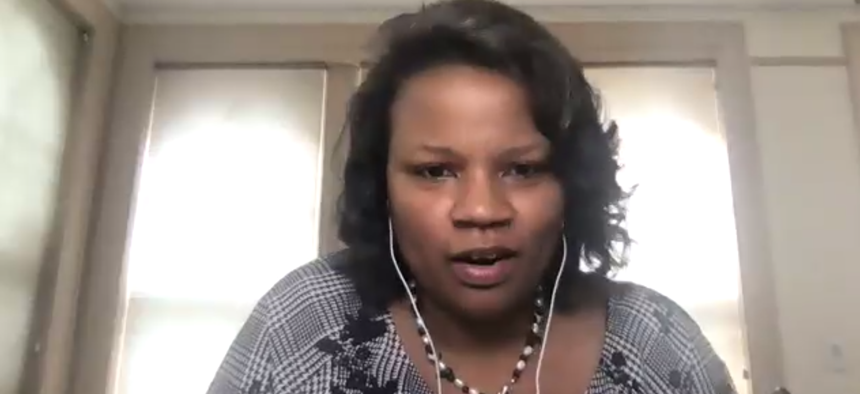How human services can fuel systemic racism

Emma Jordan-Simpson, executive director of Fellowship of Reconciliation USA. Zoom
Human services can often uphold racist institutions at the expense of actual positive change, government, philanthropic and nonprofit leaders discussed during a virtual event on Friday.
“I’ll never forget when I entered the nonprofit space … having conversations where I began to wonder if we were working toward, as I put it, the alleviation of the burdens of of the effects of poverty, or were we trying to work towards the eradication of poverty,” said Jennifer Jones Austin, executive director and CEO of FPWA, the anti-poverty advocacy organization hosting the event. For example, amid declines in the population of New York City’s foster care system, she said she heard from organizations that requested more foster youth not because it was a good thing, but to balance their budgets. Other nonprofits opposed FPWA’s efforts to raise wages for nonprofit workers, she said, despite the fact that the workforce is mostly made up of women of color.
Emma Jordan-Simpson, executive director of Fellowship of Reconciliation USA and a board member of FPWA, noted that the phenomenon is often described as the “nonprofit industrial complex,” and frequently relies on the continued suffering of Black people. The term is often used by critics of the nonprofit sector, who say their structure restricts the scope of social justice movements and often fuels the same social ills they are meant to solve.
Some of the negative trends found among human services nonprofits are fueled by funders, noted Ana Oliveira, president and CEO of the New York Women’s Foundation, particularly since many don’t even take into account the voices of the communities they serve. “Philanthropy needs to be accountable,” she said. “These are dollars that have been made on the backs of people, the very communities that are underinvested, the various communities that are deemed not worthy of transforming their own lives in their own terms.”
